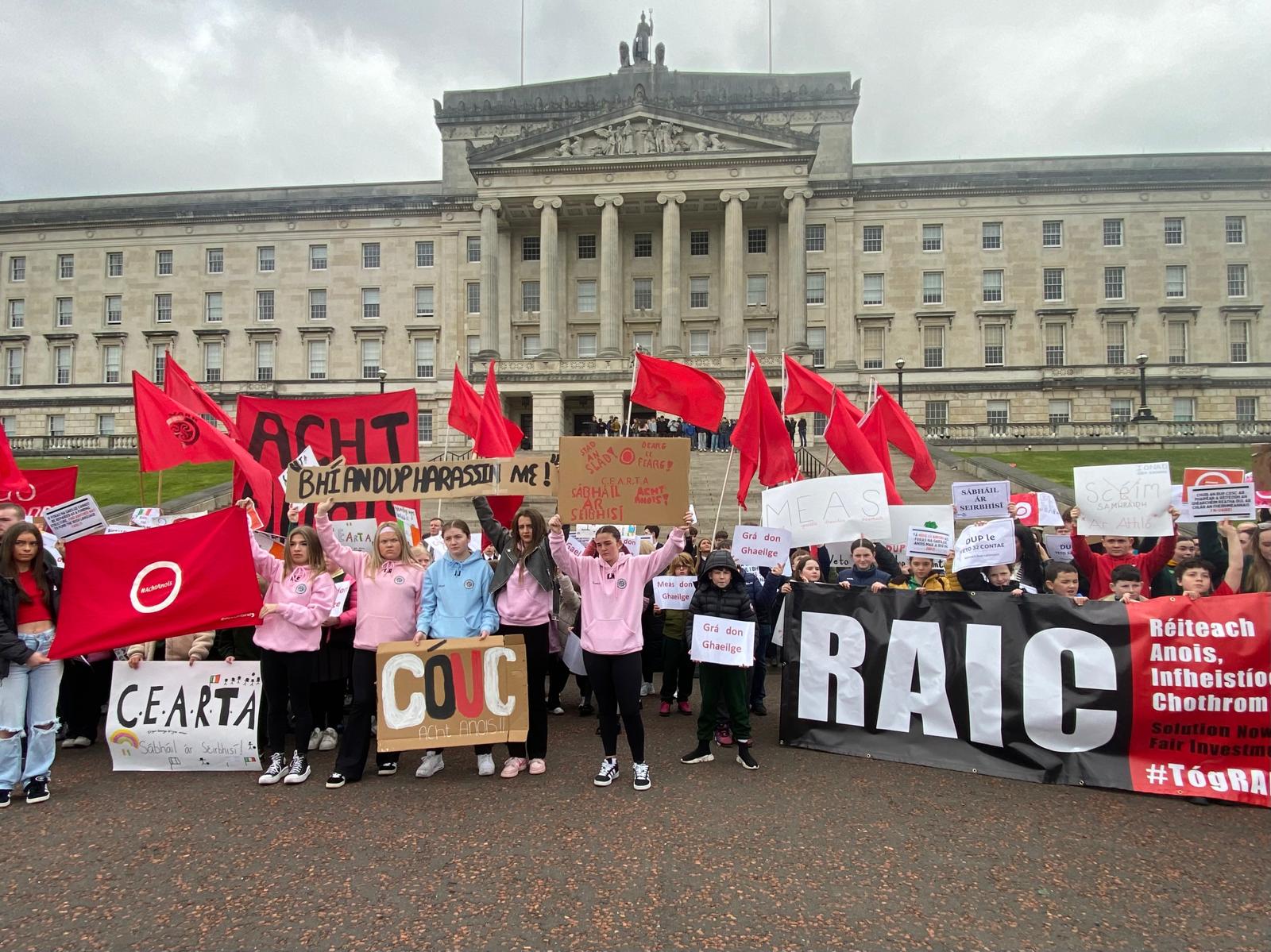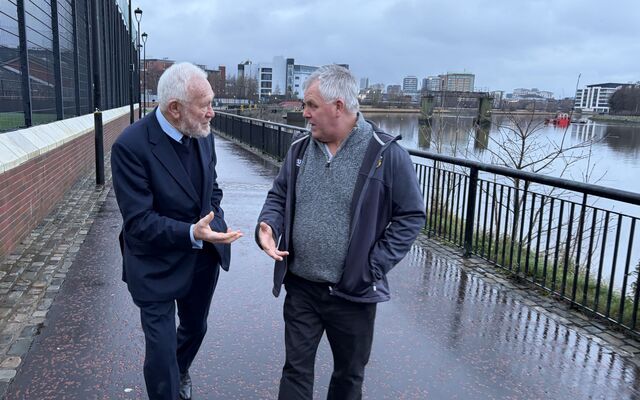THE model for funding the Irish language is “no longer fit for purpose” and has been cast into doubt by the current crisis created by the DUP.
Earlier this year Foras na Gaeilge announced that it would have to implement cuts of €817,945 after the DUP blocked a new funding structure that would have seen the Irish government increase its funding pot for the organisation that was set up as part of the Good Friday Agreement.
Amid growing concerns that Irish language projects would have to be cancelled and jobs lost as a result of the cuts, Irish language groups protested at Stormont and staged a one-day strike calling for increased funding and long-term investment in the Irish language sector.
Currently 25 per cent of Foras na Gaeilge’s budget comes from the government in the north and 75 per cent from the government in the south and neither government can put additional money towards the Foras budget without the equivalent from the other government. Recently, a new arrangement was agreed between the two Ministers of Finance and announced at the North South Ministerial Council in September 2024, which would allow either government to put additional money towards the budget of An Foras Teanga without the equivalent of the other government. It has since emerged that the DUP has blocked this proposal from going on the Executive’s agenda at least seven times since October 2024.
Last week at a North-South Ministerial Council meeting in Armagh the Irish government announced a funding package of €630,000, which was greeted as a “temporary respite” by Irish language groups. The Irish government funding leaves a deficit of €190,000 for this year, with the funding issue expected to arise again next year.
Now Irish language advocacy group Conradh na Gaeilge is calling for “significant reform” of Irish language funding as the DUP blockage continues.
Ciarán Mac Giolla Bhéin, President of Conradh na Gaeilge, said that over a quarter of a century after the Good Friday Agreement, it is “abundantly clear” that the north-south funding model “is out of date and no longer fit for purpose”.
“That funding framework, which requires proportionate match-funding from both governments, is not capable, in its present form, of meeting the ever growing needs and expectations of our community,” he said.
“We have a responsibility to ensure this crisis is urgently addressed. We cannot sit back and leave another generation of Irish language speakers without adequate services, spaces or support. Both governments have a duty under the Good Friday Agreement to take ‘resolute action’ to promote and protect Irish.
“The current DUP block to reforming these financial structures rides roughshod over the vision set out in the 1998 Agreement. We call for a renewed effort on both sides of the border to finally reform the Foras na Gaeilge financial framework. In the event that the DUP continue to maintain their disgraceful position in blocking those reforms, the community will expect significantly more funding to be provided to Irish language groups via an alternative method.”







